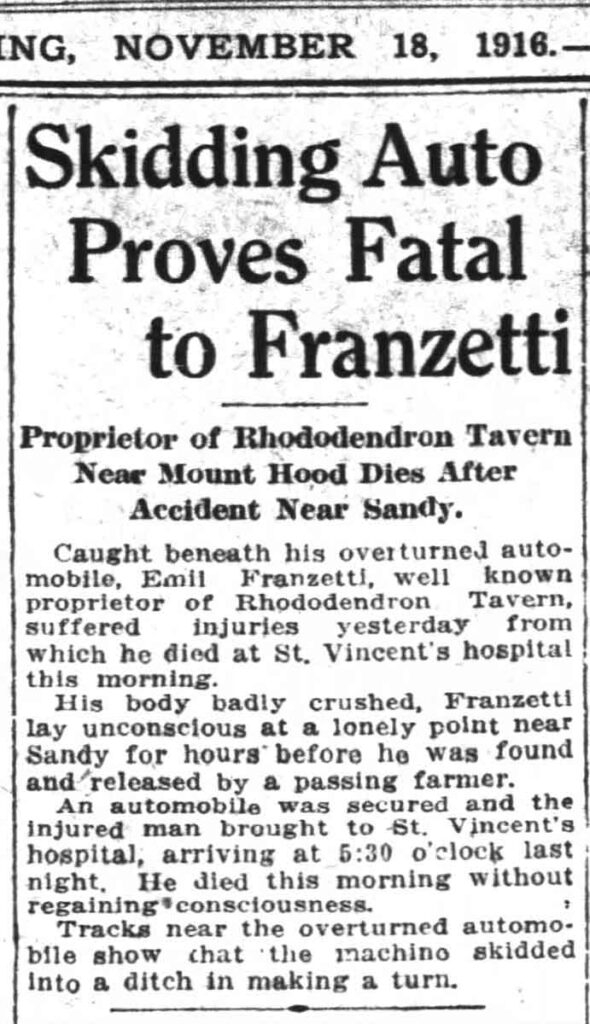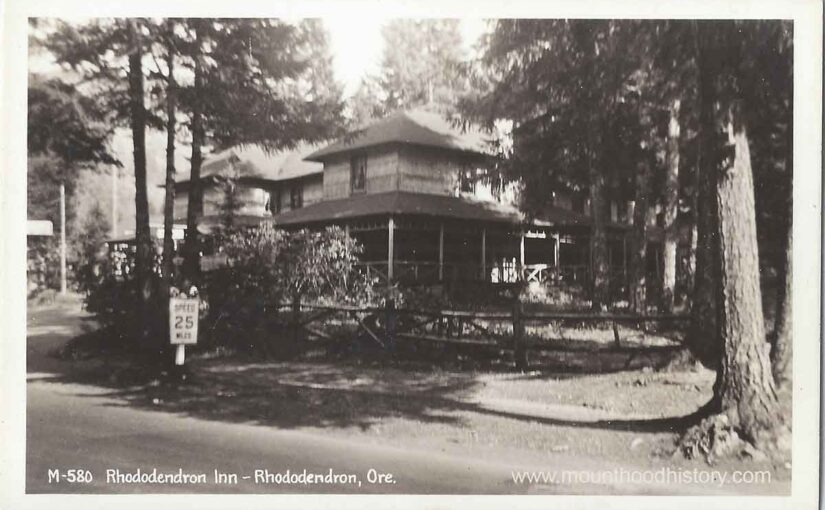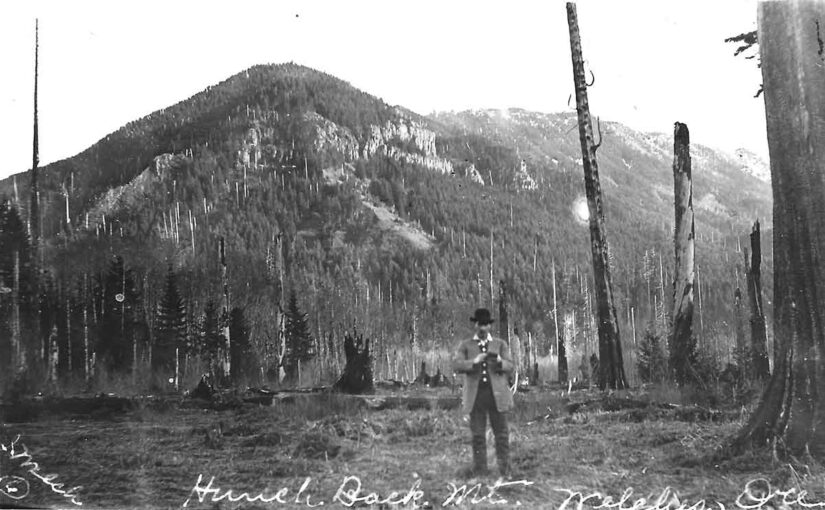The Culinary Legacy of Emil Franzetti
The Chef Who Brought Fine Dining to the Forest
Before ski resorts dotted the highway and travelers packed the trailheads, Emil Franzetti of the Rhododendron Inn brought elegance and fine cuisine to Oregon’s Mount Hood region. He helped transform the rugged wilderness into a mountain destination known for hospitality and good food.
At a time when most mountain lodging focused on bare essentials, Emil introduced elegance and culinary sophistication to a rugged frontier. He made people feel like honored guests, even in the Oregon woods.
From the Italian Lakes to Royal Kitchens
Emil was born near the Italian lakes and trained in Switzerland. He built a world-class culinary career, cooking in Corsica, London, and along the Italian Riviera. His expertise earned him the prestigious role of chef to the King of Italy, a rare honor that spoke volumes about his talent.
Portland, Crawfish, and a New Path to the Mountain
In 1905, Emil moved to the United States and married Susette, a hospitality professional he had met in Geneva. Together, they lived in New York, Baltimore, and Washington, D.C., where Emil worked at high-profile hotels, including the New Willard.
They eventually moved to Portland, Oregon. There, Emil became head chef at The Quelle, a restaurant celebrated for its crawfish cooked in wine. The Quelle was more than a restaurant—it was a culinary landmark. Emil’s role as head chef helped shape Portland’s fine dining scene. He spent four years there before he left for the little mountain community of Rhododendron.
Rhododendron Inn Becomes a Culinary Destination
In 1911, Emil and Susette bought the Rhododendron Tavern, a lodge built by former Portland mayor Henry S. Rowe. Located on 160 wooded acres, the inn sat near the Zigzag River and welcomed travelers heading to Mount Hood.
Emil expanded the property and improved the guest experience. He added a dance hall, a swimming pool, bridle paths, and cozy guest cottages. He even caught trout himself from nearby streams and served them to guests. Emil created a space where rustic charm and refined hospitality came together.
The Tragic Loss of Emil Franzetti
In November 1916, Emil drove near the Zigzag Ranger Station when his car slid into soft sand and flipped over. A passing farmer found him hours later, unconscious and pinned beneath the vehicle.
Rescuers brought him to St. Vincent’s Hospital, but Emil never regained consciousness. He died shortly after, at just 35 years old.
Friends and fellow outdoorsmen gathered at St. Mary’s Cathedral for his funeral. Members of the Mazamas Winter Skiing Club, many of whom Emil had personally hosted, paid their respects.

How Emil Franzetti Changed Rhododendron Forever
Although Emil lived a short life, his impact endures. After his death, Susette continued operating the Rhododendron Inn for seven more years. Her work honored Emil’s vision and helped develop the area into the mountain community it is today.
Together, Emil and Susette helped turn Rhododendron into a meaningful stop along the Mount Hood Highway. Emil’s commitment to quality, service, and hospitality laid a foundation that others built upon.
Emil’s Spirit in the Heart of the Mountain
The Rhododendron Inn burned down in 1949, but Emil’s legacy lives on through the stories of early Oregon hospitality. His time at the inn remains a powerful example of how one individual can elevate a place through heart, skill, and a deep respect for the guests he served.
So the next time you travel the Mount Hood Highway, picture Emil Franzetti, fresh trout in hand, preparing a meal with the same care he once gave to kings.
Emil Franzetti’s story is inseparable from the legacy of the Rhododendron Inn. To this day, visitors and locals remember Emil Franzetti Rhododendron Inn as a turning point in Mount Hood’s tourism history.
Read about Susette Franzetti HERE
Read about Emil and Susette at the Rhododendron Inn HERE



